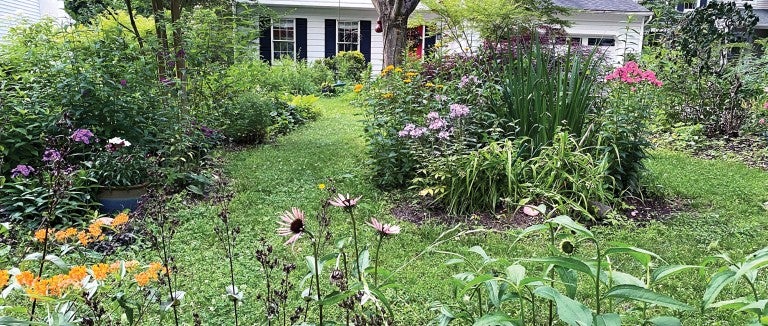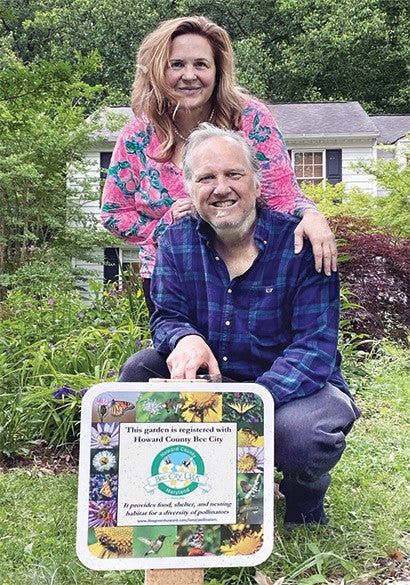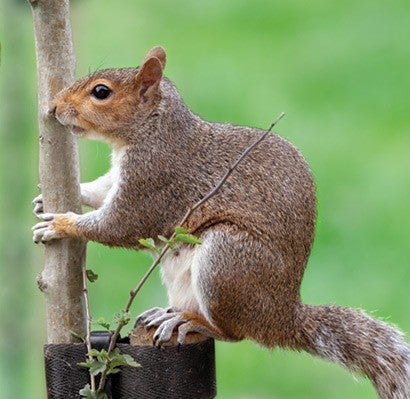The delegate seemed ready to pick a fight, already having mocked a proposed plastic bag ban and other pro-environment bills on the day’s agenda. As I finished my testimony in support of wildlife-friendly plantings, I steeled myself for a heated debate.
But on that gray afternoon in February 2020, even the crankiest person in the committee hearing room couldn’t deny the bees and the butterflies. “Who wouldn’t support pollinator gardens?” he asked, portending near-unanimous approval by the Maryland General Assembly. Though stalled by pandemic delays, the “low-impact landscaping” bill—which requires homeowner associations to allow habitat gardens and prohibits them from mandating turfgrass—sailed through the legislature in 2021 and became law Oct. 1.
Native plantings not only provide food, shelter and nesting sites, they hold ground through deep roots and absorb strong rains, alleviating poor drainage caused by patchy lawns that invite mosquitoes to breed.
A humane backyard is a natural habitat offering wildlife plenty of food, water and cover, plus a safe place to live free from pesticides, chemicals, free-roaming pets, inhumane practices and other threats. And it's so easy to build!

Want more content like this?
This was written and produced by the team behind All Animals, our award-winning magazine. Each issue is packed with inspiring stories about how we are changing the world for animals together.
Learn MoreSubscribe



